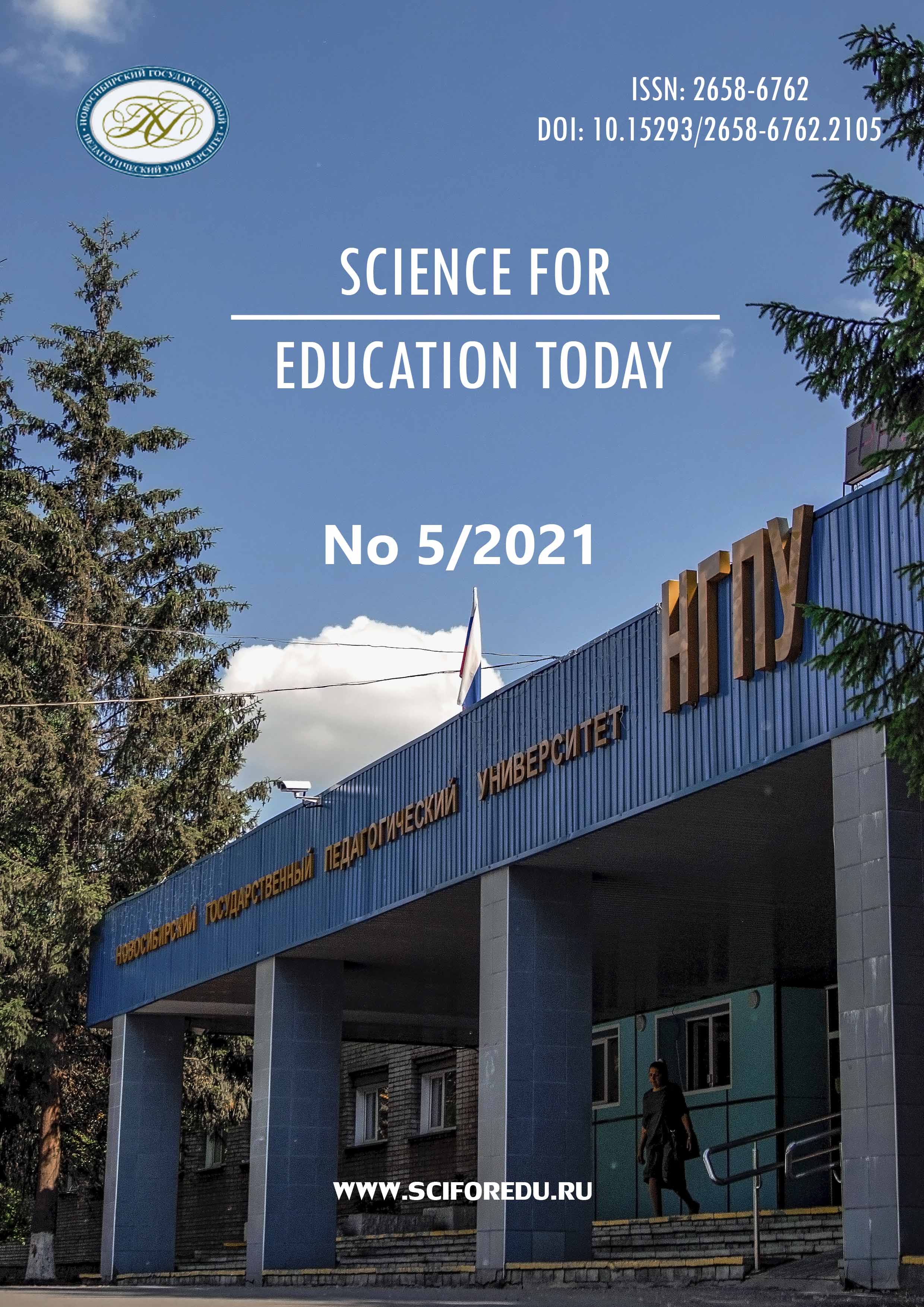Влияние индивидуального вегетативного статуса на адаптацию студентов к учебному процессу и результативность дас-бос-тренинга
The impact of students’ individual vegetative status on their psychophysiological ad-aptation to the learning environment: the effectiveness of RSA-BFB therapy
Author(s): Pavel Yurievich Zarchenko, Lidiya Aleksandrovna Varich, Eduard Mihailovich KazinSubject(s): Higher Education , Health and medicine and law, Sociology of Education
Published by: Новосибирский государственный педагогический университет
Keywords: Students of medical and biological degree programmes; Adaptation to educational environment; Neurodynamic indicators; heart rate indicators; Autonomic regulation; Type of functional response;
Summary/Abstract: Introduction. The article summarizes the results of studying the process of students’ adaptation to the learning environment in a wide range of degree programmes provided by higher educational institutions. The purpose of the article is to identify the characteristic features of students’ psychophysiological adaptation to the learning environment, taking into account the peculiarities of autonomic regulation, with the subsequent assessment of the effectiveness of using RSA-BFB therapy. Materials and Methods. The study involved 209 second-year medical and biological students. The study of neurodynamic characteristics was carried out using an automated psychophysiological complex. Heart rate variability indicators were evaluated by means of cardiorhythmography. The authors conducted a comparative analysis of the mean values and identified the correlation between neurodynamic characteristics and indicators of heart rate variability of students doing academic degrees in various fields. RSA-BFB therapy was used to increase students’ adaptive capabilities. Results. The characteristic features of adaptive reactions were revealed depending on the initial vegetative tone and the type of functional response. The combination of psychophysiological and medico-biological constitutional approaches used in the work enabled the authors to expand and clarify the ideas about the mechanism of the functional self-regulation system and classify the types of adaptive reactions in the process of educational: adaptive, compensatory and maladaptive. After the RSA-BFB therapy for students prone to maladaptive reactions, in comparison with the control group, there was an improvement in the strength of the nervous system and the mobility of nervous processes. Using RSA-BFB therapy contributed to overcoming chronic stress and developing reaction patterns inherent in adaptive types. Conclusions. The use of RSA-biofeedback therapy, taking into account the individual-typological characteristics, has contributed to balancing ergotropic and trophotropic processes, restoring the body's functional reserves and improving the efficiency of adaptation to learning environment.
Journal: Science for Education Today
- Issue Year: 11/2021
- Issue No: 5
- Page Range: 107-127
- Page Count: 21
- Language: Russian

